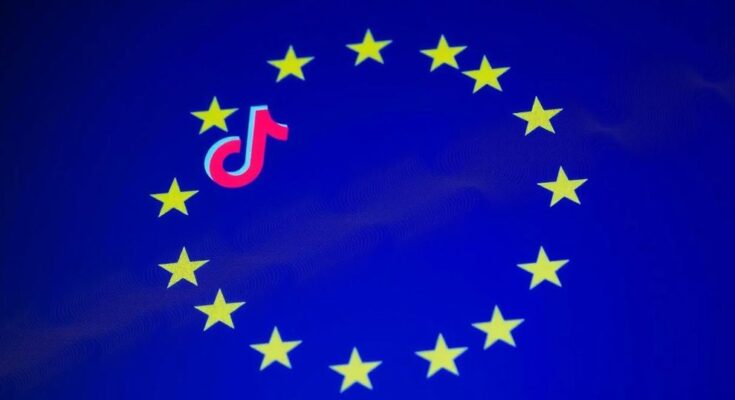The European Commission is investigating TikTok for potential Russian influence in Romania’s presidential election, sparked by Călin Georgescu’s unexpected first-round victory. Allegations of campaign financing irregularities and manipulation of social media to sway voters have arisen. The Commission’s scrutiny extends to national elections across the EU, emphasizing the importance of transparency and legal compliance in electoral processes.
As Romanians prepare to participate in the critical second round of their presidential election, the European Commission is increasing its examination of TikTok due to potential Russian interference. This heightened scrutiny follows the unexpected first-round success of Călin Georgescu, a pro-Russian candidate, and the elimination of current Prime Minister Marcel Ciolacu. Concerns have risen because the presidency in Romania holds substantial authority over national security and foreign policy, vital aspects for this Eastern European nation.
In the initial voting round, Georgescu received 22.9 percent of the votes, while conservative-liberal candidate Elena Lasconi earned 19.2 percent. Ciolacu, representing pro-European values, narrowly missed advancing with 19.15 percent. Following Georgescu’s first-round victory on November 24, allegations of irregularities in campaign financing surfaced, leading to complaints filed with the Romanian Constitutional Court. The complaints claim that Georgescu failed to disclose campaign funds and accepted foreign contributions, which are prohibited. Despite these allegations, the court conducted a recount that upheld the original results.
Rumors of Russian interference emerged quickly after the first round of elections, specifically pointing to claims of TikTok being manipulated to sway voter opinions. Recently, the European Commission revealed it has obtained “recently declassified information” indicating the possibility of Russian interference in the election process. In response, the Commission has requested TikTok to provide transparency regarding its user suggestion algorithm and strategies for countering manipulation.
The Commission’s investigation extends beyond Romania to encompass national elections across the EU scheduled between November 24, 2024, and March 31, 2025. While the Commission has yet to draw definitive conclusions, it is assessing TikTok’s adherence to legal requirements. With the Romanian presidency carrying significant influence over foreign policy and national security, the stakes in this election are exceedingly high, especially as Klaus Iohannis, the incumbent president, is ineligible for re-election.
Concurrently, pro-European political factions in Romania have forged a coalition following last weekend’s parliamentary elections, aiming to prevent the ascent of nationalist and far-right parties in government.
The scrutiny of TikTok amidst the Romanian presidential elections highlights the emerging concerns regarding the interference of foreign entities in domestic elections, particularly from Russia. The allegations of manipulation through social media platforms have become increasingly relevant, as these platforms play a crucial role in shaping electoral outcomes. The Romanian presidency’s significant influence over national security and foreign policy further intensifies the need for vigilance against potential foreign interference, especially given the recent political landscape in Romania where pro-Russian sentiments are gaining traction.
The investigation into TikTok by the European Commission regarding its involvement in the Romanian presidential elections reflects broader concerns about electoral integrity and foreign interference. As impending elections grow closer, ensuring transparency and adherence to legal obligations becomes paramount. The implications of these investigations could not only affect Romania but also set a precedent for monitoring foreign influence in future elections across the European Union.
Original Source: www.belganewsagency.eu




